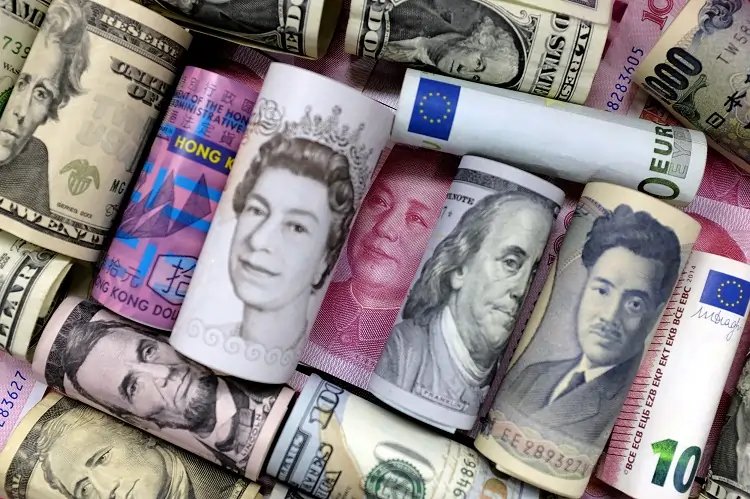Euro rallies as French far right faces tricky path to majority


By Rae Wee and Harry Robertson
SINGAPORE/LONDON (Reuters) -The euro jumped on Monday after a convincing and historic win by the French far right in the first round of parliamentary elections fell slightly short of some expectations, leaving the final result dependent on party deals before a second round next weekend.
Meanwhile, the yen hovered around a 38-year low after data showed Japan’s economy shrank more than initially reported in the first quarter, leaving traders on alert for signs of intervention to prop up the currency.
Marine Le Pen’s far-right National Rally (RN) party won the first round of France’s parliamentary elections on Sunday by a large margin, exit polls showed, although analysts noted it won a smaller share of the vote than some polls had initially projected, triggering a rally in stocks and bonds.
The euro was last 0.4% higher at $1.0759, around a two-week high. It has lost around 1.2% since the French far right triumphed in European parliamentary elections in early June, prompting President Emmanuel Macron to call a snap election in France.
They (RN) have actually performed a little bit worse than what was expected,” said Carol Kong, a currency strategist at Commonwealth Bank of Australia.
“We might actually get less fears of more expansionary and unsustainable fiscal policy if the far-right party did a little bit worse.”
Investors have been concerned that the RN could come to power through “cohabitation” with Macron and push a high-spending and euro-sceptic agenda.
First round results are not offering much certainty about the composition of the parliament, and the second round scheduled for next weekend is in fact the big risk event,” said Francesco Pesole, currency strategist at ING.
Pesole also said the fact that the left-wing coalition, which also wants to boost government spending, did not receive more votes than expected was likely boosting the euro too.
The rise in the euro sent the dollar a touch lower against a basket of currencies, though the greenback was on the back foot after data on Friday showed U.S. inflation cooled in May, cementing expectations the Federal Reserve will begin cutting interest rates later this year.
The dollar index was last 0.14% lower at 105.57, around a one-week low.
Against the dollar, sterling rose 0.27% to $1.268, while the Aussie rose 0.1% to $0.6677.
Market pricing now points to about a 63% chance of a Fed cut in September, as compared to a 55% chance a month ago, according to the CME FedWatch tool.
“Should inflation continue to behave itself… the first 25 basis point cut remains on the cards as soon as September,” said Michael Brown, senior research strategist at Pepperstone.
The yen struggled to gain ground against a broadly weaker dollar and was last slightly lower at 161.03 per dollar, standing just a whisker away from a 37-1/2-year low of 161.27 hit on Friday.
The yen has fallen more than 12% this year, with its latest decline to the weaker side of 160 per dollar keeping investors on heightened alert for intervention from Japanese authorities to prop up the currency.
Data showing weaker-than-expected economic growth added to the uncertainty about the Bank of Japan’s next move in interest rates.
The BoJ meets in late July and has hinted that it could raise borrowing costs, potentially helping close the yawning gap between Japanese and U.S. rates that has hammered the yen this year by causing investors to flock to the higher returns on U.S. bonds.
Separate data on Monday showed the business mood in Japan’s service-sector soured in June, offsetting a big lift in factory confidence.
(Reporting by Rae Wee in Singapore and Harry Robertson in London; editing by Stephen Coates and Jason Neely)
The euro is the official currency of the Eurozone, used by 19 of the 27 European Union member countries. It was introduced in 1999 and is symbolized by €.
Foreign exchange, or forex, refers to the global marketplace for trading national currencies against one another. It is the largest financial market in the world.
Currency intervention occurs when a country's central bank buys or sells its own currency in the foreign exchange market to influence its value.
Economic growth is an increase in the production of goods and services in an economy over a period of time, typically measured by GDP.
Explore more articles in the Top Stories category











